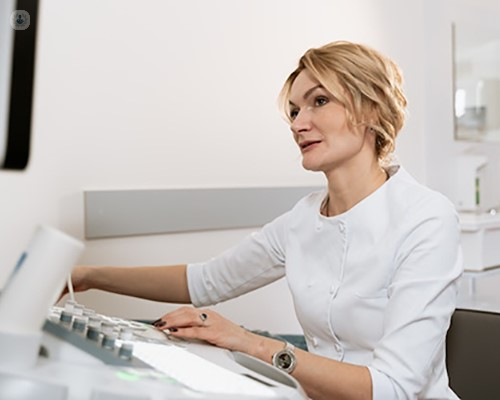Egg freezing in 2023: Empowering women to strategically plan their reproductive futures
Escrito por:Egg freezing has emerged as a prominent fertility preservation method in 2023, evolving from its initial purpose in the 1980s as a safeguard for women facing health treatments that could jeopardise their future fertility. Today, it has become the proactive choice for savvy women who wish to plan their reproductive futures strategically. For women who are career-focused or have not yet found the right time to start a family, egg freezing offers an intriguing solution.
In her latest online article, Dr Anu Chawla gives us her insights into egg freezing. She talks about the process, why choose egg freezing, what is social egg freezing, if it’s a safe procedure, the age limit and the cost.

Egg freezing essentials: What does the process entail?
As women age, the quantity and quality of their remaining eggs decline, affecting their chances of conceiving. This decline becomes more pronounced after the mid-thirties and particularly steep after the age of 40. While the rate at which fertility declines varies among women due to factors like genetics and lifestyle, age remains the primary factor in fertility decline. Hence, preserving eggs during a stage when the ovaries still produce high-quality eggs offers a valuable insurance policy for women not yet ready for motherhood. The egg freezing procedure closely resembles the initial stages of an in vitro fertilisation (IVF) cycle. It involves hormone medications to stimulate the ovaries, leading to the production of more eggs for harvesting. These eggs are then retrieved, frozen, and stored for future use in fertility treatments, whenever the need arises. To utilise the frozen eggs later, they are thawed and fertilised with sperm to create embryos. Subsequently, these embryos are implanted in the womb to develop into a pregnancy.
Why choose egg freezing, and What is 'Social egg freezing'?
There are various reasons why a woman might opt for egg freezing, such as undergoing treatments like chemotherapy or concerns about a family history of early ovarian failure. However, the most prevalent reason is the need for more time, often referred to as social egg freezing. Women may require more time before starting a family due to not having met the right partner, the desire to establish financial stability, or career advancement before embarking on parenthood. Modern women, especially in bustling cities like London, are frequently pulled in multiple directions. They aspire to offer their future children the best start in life but believe that the present moment may not be the ideal time. This is where egg freezing steps in, allowing them to preserve higher-quality eggs until the crucial elements for starting a family, such as financial security and the right partner, align.
Is egg freezing safe?
Egg freezing does not compromise a young woman's prospects of conceiving naturally in the future; instead, it provides peace of mind as a backup plan. If you ultimately don't need to use your frozen eggs, you can choose to donate them or have them discarded. To date, there is no evidence suggesting an increase in birth defects, developmental issues, or chromosomal abnormalities in children conceived with frozen eggs. In fact, using high-quality eggs frozen during youth can reduce the risks associated with older motherhood, such as chromosomal and genetic problems and miscarriages. In essence, a woman over 40 has a better chance of a healthy pregnancy using embryos created in her mid-30s than with fresh embryos at 40.
What Is the age limit for egg freezing?
There isn't a strict age limit for egg freezing, but there comes a point, typically in one's forties, where a responsible clinician will encourage careful consideration. The message emphasises the importance of time in fertility. The sooner a woman opts for egg freezing as a life investment, the better her biological prospects. Recent legislative changes now allow for egg freezing for any reason, extending the storage period up to a maximum of 55 years. Previously, the law only permitted egg freezing for a decade unless for medical reasons, making it a challenge for many women to align the storage period with their family plans. These legal changes have given women more control over when to freeze and use their eggs.
What Is the cost of egg freezing?
The cost of egg freezing varies depending on the number of cycles and the duration of egg storage. The number of cycles needed is determined by an individual's medical history and fertility profile, a crucial aspect discussed in detail by reputable clinics.
Egg freezing has gained immense popularity in 2023, offering a proactive approach for women to take control of their fertility and extend their options for starting a family when the time is right. With evolving laws and increasing awareness, this procedure continues to empower women to make informed choices about their reproductive futures.
Dr Anu Chawla is a distinguished fertility specialist with over 15 years of experience. You can schedule an appointment with Dr Chawla on her Top Doctors profile.


